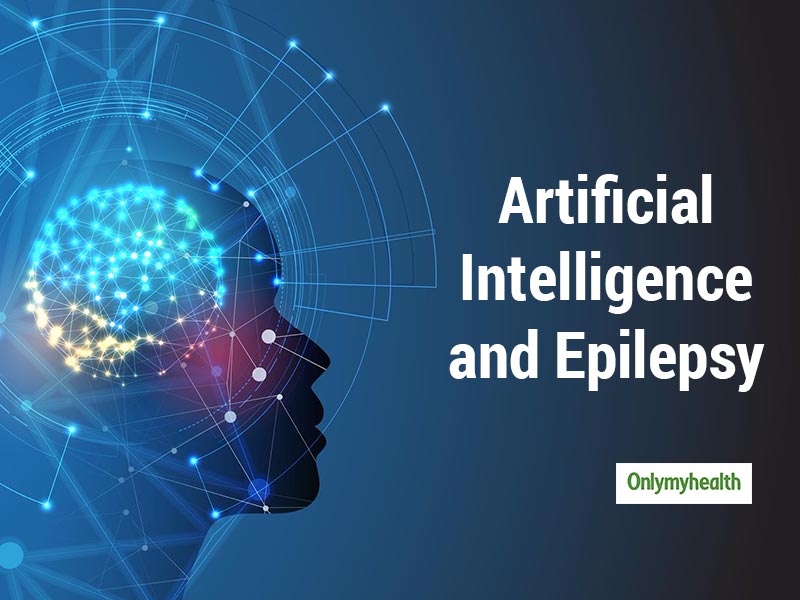
The neurological disorder is increasing at a rapid rate. There are more than 600 types of neurological disorder ranging from mild to chronic. It is now becoming a global burden with 9 million death per year due to various neurological diseases.The researcher has shown that a new tool of artificial intelligence will help in treating epilepsy, one of the neurological disorder.
Table of Content:-
Epilepsy is the fourth most prevalent neurological disorder which affects nearly 65 million people all around the world. It neither depends on age nor gender. It can happen anytime to anyone.
Also read: Can dark chocolate help you lose weight?
Epilepsy

- Epilepsy or epileptic disorder is a brain disorder which disturbs the nerve cell causing seizures (fit or attack).
- This neurological disorder seizures occur in episodes varying from brief to long periods and are nearly for unpredictable periods of uncontrolled shaking.
- It is sometimes considered as brain’s electrical activity other than a brain disorder.
Epilepsy is regarded to be related to brain injuries and genetical factors, researchers have found frequent seizures or fit in healthy individuals too. Causes and method of these seizures are still a mystery. It is however predicted that source of seizure is within the individual's brain. The brain itself is considered the generator of epilepsy.
So if the reason is inside the brain, fingerprint detection can be made. This question the technology of mapping the brain signals and tendency of epilepsy.
Also read: Here are some proven health benefits of dark chocolates
About the study
- A team of researchers conducted a study to dig deep inside epileptic disorder in the brain. The study reveals that there is an independent neural network that can carry disorder sensitive information about the irregularity in seizures.
- It was detected with the help of machine models and artificial intelligence which also revealed the hidden pattern of recurrent seizures.

- Dr. Tapan Kumar Gandhi, IIT Delhi is the lead researcher of this study told the India Science Wire that Epilepsy is not a disorder but the illustration of some electrical activity from inside the Brain. When the network gets discharged and demonstrates externally in a frequent manner then only it becomes epilepsy or disorder.
- Epilepsy is diagnosed by EEG ( electroencephalogram) tool which reads the epileptic patterns and other symptoms like convulsions, sensory disturbance or loss of consciousness.
- The earlier study highlighted specific patterns that show synchronous activities of cognitive and other functions. These synchronous activities are indicated by the change in blood flow to the brain and are known as BOLD signals ( Blood Level-Dependent Output).
- The recent growth in Magnetic Resonance Imaging or MRI will help in imaging synchronous brain’s activity and detect the causes of seizures. Functional MRI can record regional interactions in the brain during a particular task. However, simple MRI is not very useful in a sudden outburst.
- The team utilized the first MRI technique and performed brain scanning on people suffering from epilepsy. They tried to predict disease-specific network in a brain suffering from epilepsy using machine learning model.
- Machine learning includes artificial intelligence to read instant live data in spite of giving pre-programmed information. This type of machine intelligence is equivalent to neuron cell of the brain.
- The tool used by researchers is Support Vector Machine (SVM) to obtain complex and non-linear data from the scans. Another algorithm called elastic net-based ranking extracted the relevant neuro-imaging.
- The study was conducted on 132 individuals, out of which 32 were suffering from epilepsy taking age, gender, genes, injury, and medication parameters. SVM identified the age of onset, frequency of occurrence and duration of seizures.
- This research will help in better detection and treatment of epilepsy shortly with the help of artificial intelligence. Technology is helping every field in its way and is the answer to many of the undetected problems. The technology of artificial intelligence should be used effectively for generous purposes only.

Rose Dawn Bharath, Sujas Bharadwaj, Sanjib Sinha, Kenchaiah Raghavendra, Ravindranadh C. Mundlamuri, Arivazhagan Arimappamagan, Malla Bhaskara Rao, Jamuna Rajeshwaran, Kandavel Thennarasu and Parthasarathy Satishchandra (National Institute of Mental Health and Neurosciences, Bengaluru); Tapan K. Gandhi and Jeetu Raj (IIT, Delhi); Rajanikant Panda (Universitè de Liège, Belgium); Ganne Chaitanya (Thomas Jefferson University, USA) and Kaushik K. Majumdar (Indian Statistical Institute) are the researcher involved in this new study.
Read more on Health News
How we keep this article up to date:
We work with experts and keep a close eye on the latest in health and wellness. Whenever there is a new research or helpful information, we update our articles with accurate and useful advice.
Current Version